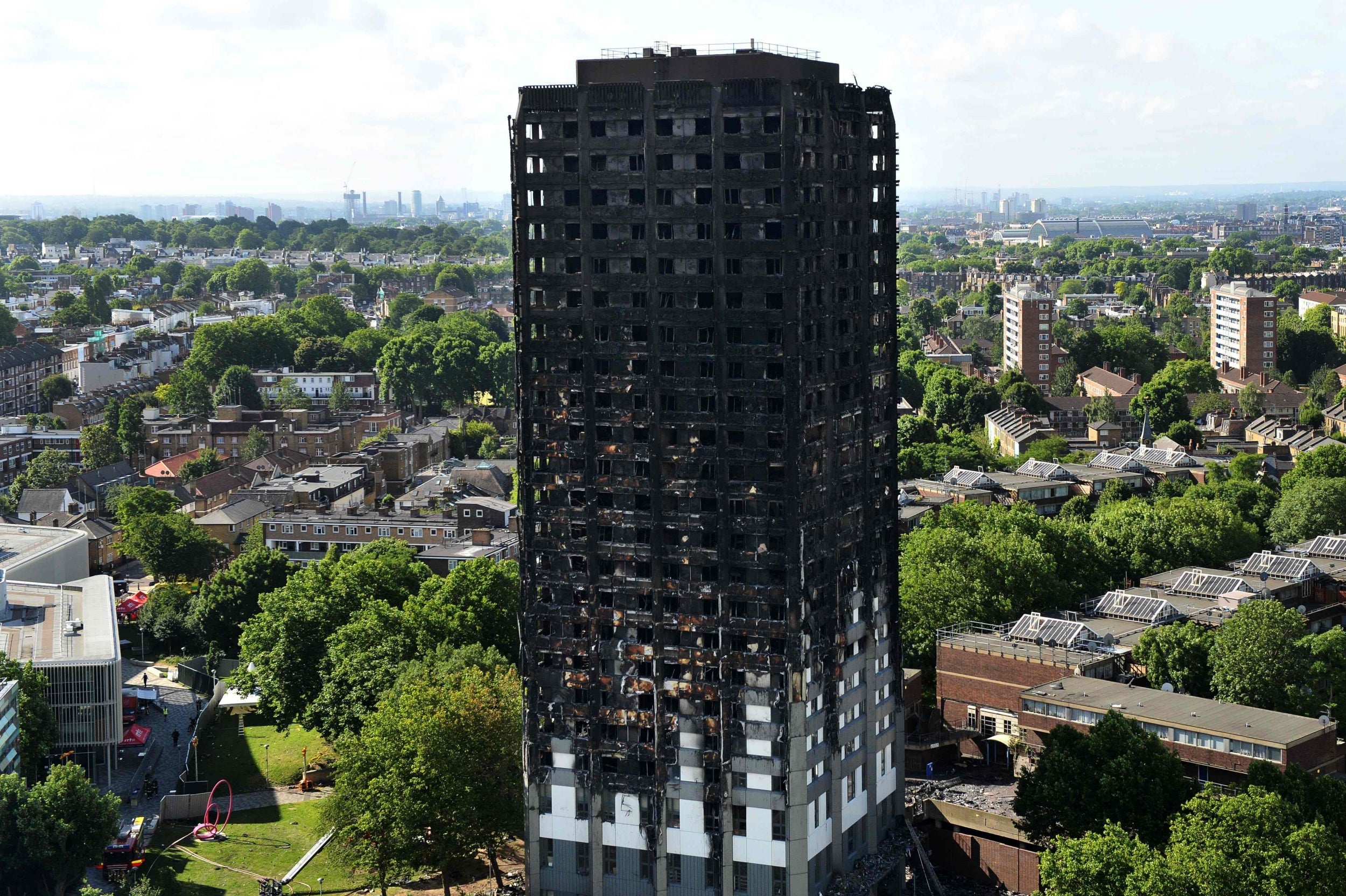Dozens of residents in buildings with flammable cladding have contemplated suicide, survey finds
Issues have ‘hugely affected’ mental health of nearly eight in 10 respondents, writes Samuel Osborne

Dozens of people living in buildings with dangerous cladding have contemplated suicide, according to a survey.
Nearly three years after the Grenfell Tower fire, homeowners in residential blocks covered with such flammable materials have spoken of suicidal thoughts, insomnia, and deteriorating mental health, according to the survey, carried out by the campaigning UK Cladding Action Group (UKCAG).
Many homeowners are stuck in properties that cannot be mortgaged or sold, paying large sums for temporary fire safety measures, and facing bills of tens of thousands of pounds to complete removal work.
The survey of 550 residents across 143 private buildings indicated cladding issues have “hugely affected” the mental health of nearly eight in 10 respondents.
The survey, based on the responses of 550 residents across 143 private buildings, indicated cladding issues have “hugely affected” the mental health of nearly eight in 10 respondents.
Some 14.5 per cent reported suicidal feelings while 8 per cent said they had felt a desire to self-harm.
More than a quarter (26.9 per cent) said they had received a new diagnosis of depression or anxiety, while 46 per cent have sought or are planning to seek medical help with mental health issues, it added.
Nearly one-third said they had turned to alcohol to help cope with stress.
Last summer, the then-housing secretary James Brokenshire said he expected all Grenfell-style aluminium composite material (ACM) cladding would be removed by June 2020.
However, the latest figures from the Ministry of Housing, Communities and Local Government (MHCLG) show there are still at least 300 high-rise residential and publicly owned buildings with ACM cladding in England yet to be remedied.
It is estimated around 1,700 more buildings have some other form of dangerous cladding, such as timber or High Pressure Laminate.
One anonymous respondent said: “I have had months of anxious and broken sleep, felt deep regret at having bought this place and have suicidal thoughts at least twice a week. I feel like I have been robbed.”
The survey of residents, covering blocks across 46 local authority areas in England, Wales and Scotland, also found one in 10 leaseholders had taken out a loan from a bank or family members to cover costs, and more than a quarter said they cannot start a family because of money issues.
UKCAG member William Martin, who lives in an affected building in Sheffield, said: “Respondents speak of their thoughts of suicide, of their constant insomnia and of their personal battles with mental health.
“Each life is on hold, and given the sheer number of unsafe buildings and current pace of remediation, this ‘hidden’ mental health crisis is only set to get worse.
“Covid-19 has delayed remediation works further, has seen residents being asked to stay home in unsafe buildings and at time of financial difficulty for all has seen leaseholders continue to receive demands for extortionate sums of money to fix a problem they did not create.”
Matt Wrack, general secretary of the Fire Brigades Union, told The Independent: “Three years on from Grenfell, tens of thousands of people are stuck in a nightmarish limbo knowing that their homes are dangerous, while their firefighters know full-well they could see yet another fire where flames spread rapidly up a building’s exterior.
“The sheer lack of progress tackling this issue is shameful and the mental health impact on residents should shame this government too.”
The government has so far committed £200m for the removal of ACM cladding from private residential blocks and £400m for social sector blocks.
In the spring budget, the chancellor, Rishi Sunak, set up a £1bn fund for the removal of unsafe non-ACM cladding for residential blocks 18 metres or taller.
But building safety minister Lord Stephen Greenhalgh told MPs last month this is likely to cover less than a third of affected buildings, according to trade magazine Inside Housing, which supported the survey.
Leaseholders want government funds to cover all cladding removal and safety remediation work on buildings, regardless of height or speed of application to the fund.
They are also asking to be reimbursed for large costs incurred on temporary fire safety measures, such as 24-hour “waking watch” patrols, which can run into several hundred pounds per month.
Additional reporting by Press Association
Join our commenting forum
Join thought-provoking conversations, follow other Independent readers and see their replies
Comments